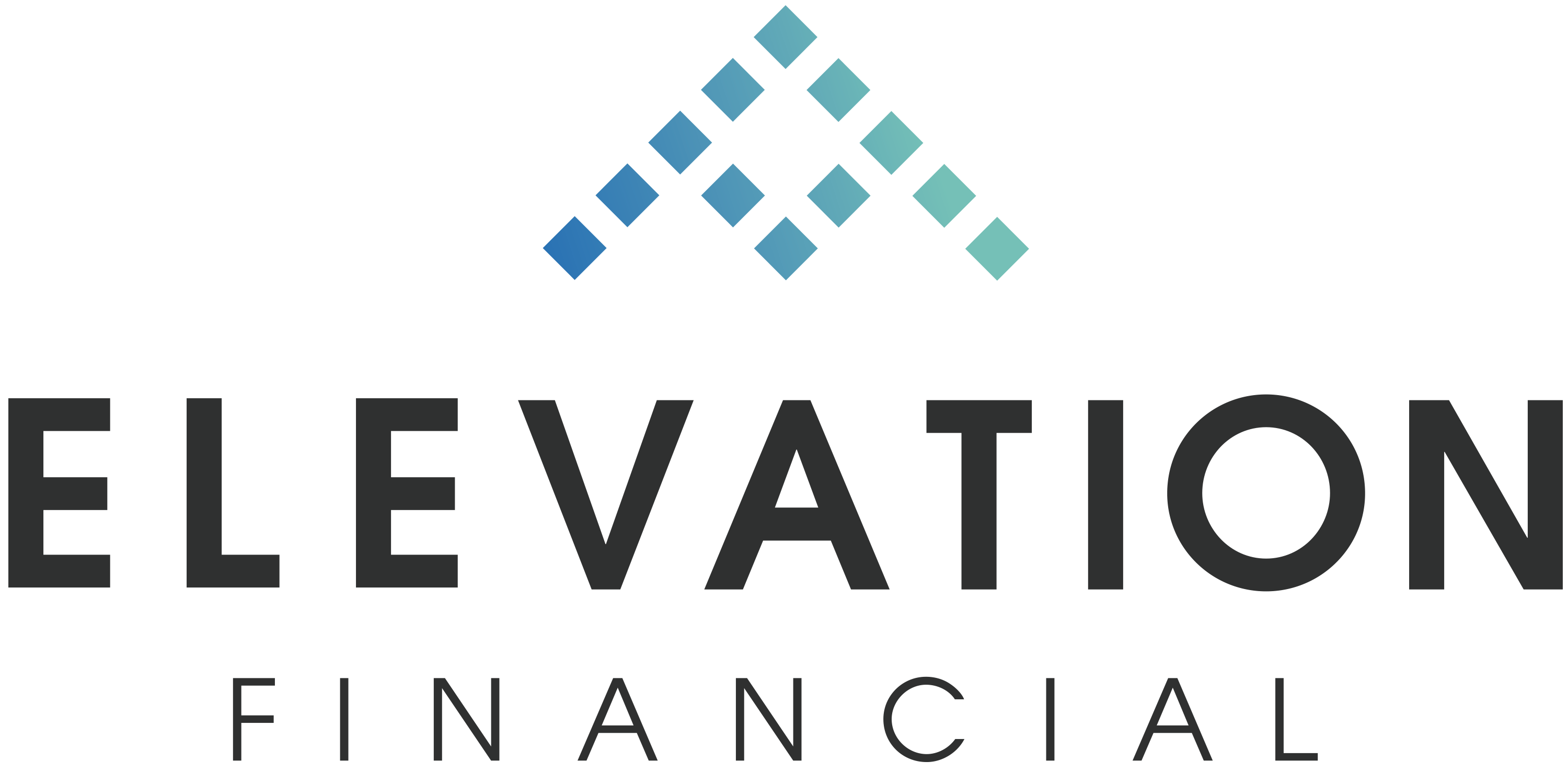
Share this Post

Need help with your money or investments? Book a consultation to learn more about working together.
How to Build Wealth in Every Stage of Life
The journey to financial prosperity is a marathon, not a sprint, and it demands dedication, strategic planning, and most importantly, time.
Financial strategies are not “one size fits all” and they change as we progress through different stages of life. Your money habits in your 20s may not be as effective in your 40s or 50s.
Understanding how to adapt your financial strategies as you age is important in order to accumulate wealth effectively and ensure long-term financial stability.
While many strategies are universal (i.e. spend less, save more, avoid debt, etc.), there are some things that are more important than others in different stages of life.
It’s also important to note that not everyone is on the same journey. Everyone is in a different place in life and it can be tempting to feel “behind” in later stages of life.
But it’s never too late to build better financial habits. We can always improve and live life with more intention.
How to build wealth in your 20s
The 20s is often a decade marked by significant personal and professional growth. It's a time of exploration, self-discovery, and setting the foundation for your adult life.
Many people in their 20s are transitioning from school into the workforce, establishing their career paths, and gaining a sense of financial independence.
It's often the time for exploring new cities, embarking on new experiences, meeting diverse people, and making lifelong friendships.
However, life in the 20s can also come with its share of challenges and pressures. There is often the financial burden of student loans, the stress of navigating the job market, and the growing responsibilities of adulthood.
It can be a time of uncertainty, as you're making decisions that can shape the course of your life—such as choosing a career, deciding where to live, or even starting a family.
This is also the time when many face the reality of budgeting, saving, and managing finances, which can be a steep learning curve.
Building wealth in your 20s can set you up for financial success later in life. Here are several habits and behaviors you might consider:
- Start Saving Early: The sooner you start saving, the more time your money has to grow. This takes advantage of compound interest, where you earn interest on the money you've saved and on the interest that money earns. If you can get a head start on investing in your 20s, it can be game-changing for your future self.
- Invest: Start investing as soon as possible, even if it's a small amount. Consider investing in a portfolio that is appropriately aligned with your time horizon. One issue that is common for individuals in their 20s is to invest too conservatively. With so much time ahead of you, your 20s is often the time to be more aggressive to take advantage of long-term returns. Using retirement accounts like a 401(k) or an IRA can offer tax advantages and help your savings grow over time.
- Create a Budget: Understand where your money is going and make a plan to manage it. Getting good at budgeting in this stage of life will pay off big time throughout your life. Track your income and expenses to see where you can cut back and save more. There are plenty of budgeting apps available to help you with this.
- Develop a Habit of Frugality: Be mindful of your spending habits. Do you need the newest gadget or could that money be put to better use in an investment or savings account?
- Increase Your Income: This can be achieved by investing in yourself, such as improving your education or learning new skills to advance in your career. You could also consider side jobs or freelance work. You might even be interested in starting a business, which can be one of the primary pillars of building wealth.
- Avoid Debt: If you have student loans or credit card debt, make a plan to pay it off as quickly as possible. High-interest rates can significantly impede your ability to save and invest.
- Build an Emergency Fund: This is a safety net that could cover 3-6 months of living expenses in case of job loss or a significant unexpected expense.
- Automate Your Savings: Automatically depositing money into your savings or investment accounts can make it easier to stick to your financial plan.
- Stay Insured: Health insurance, renters/homeowners insurance, and car insurance can protect you from large, unexpected expenses.
- Network: Building relationships with successful and motivated people can provide opportunities and teach you about personal finance and investing.
- Don't Buy a House Too Soon: If you are in a financial position to buy a house, go for it. However, many individuals and families in their 20s rush into buying a home because they are eager to build equity and may feel pressure to achieve this cultural milestone. When the time is right, buying a home can be a great move. But rushing into it without a strong financial foundation can cause strain and stress. You have plenty of time to buy a house when you are in a strong position to do so. Don't rush it!
Remember, building wealth is a marathon, not a sprint. It's about consistency, patience, and making informed decisions over a long period of time.
How to build wealth in your 30s
The 30s are often characterized by a period of settling down and establishing deeper roots. Many people in their 30s have already laid the groundwork in their 20s—choosing a career path, gaining experience and skills, and now they are starting to see the fruits of their labor.
It's a decade where many individuals aim to climb higher on the career ladder, achieving more stability and increased earnings.
People may also be deepening their commitments to partners, starting families, and purchasing their own homes. This can be a time of significant personal growth, as individuals evolve their identities from young adults to established professionals and caregivers.
Yet, life in the 30s also comes with its own unique challenges. The financial responsibilities often increase, from mortgages and raising children to caring for aging parents.
Work-life balance can become more complex as you juggle the demands of an advancing career with family commitments. It's also a time when many people begin seriously thinking about their future, in terms of financial security and retirement.
While many of the wealth-building strategies for people in their 20s apply to those in their 30s, there are additional strategies to consider at this stage of life. Here are some habits and behaviors to think about:
- Maximize Your Retirement Contributions: By your 30s, you should aim to maximize contributions to your retirement accounts. These limits may change over time, so be sure to check the current limits.
- Pay Down High-Interest Debt: If you have high-interest debt, like credit card debt, it's crucial to pay this off as quickly as possible. The interest on these types of debt can significantly impact your ability to save and invest.
- Consider buying a home: Your 30s might be a good time to consider buying a home if you're in the financial position to do so. Putting your monthly housing payment toward equity can help you strengthen your financial foundation.
- Continue to Advance Your Career: By this time, you should be well into your career path. Seek out opportunities for promotion, consider switching companies for a higher salary, or acquire new skills that could boost your earning potential.
- Set Financial Goals: Whether it's saving for a down payment on a house, setting aside money for your children's education, or planning for early retirement, it's important to set financial goals and make a plan to achieve them.
- Review and Adjust Your Investments: As you get older, you might want to adjust your investment portfolio to align with your changing risk tolerance and financial goals. It's a good idea to regularly review your investments to ensure they are still meeting your needs.
- Plan for the Future: In addition to retirement savings, you should start considering other aspects of financial planning, such as life insurance, disability insurance, and creating a will.
- Teach Your Children About Money: If you have children, teaching them about money can help them avoid financial mistakes in the future (which helps you avoid financial strain). This can also ensure that they're prepared to manage any inheritance they might receive.
- Maintain a Healthy Lifestyle: Health care costs can be a significant drain on your wealth, especially if you develop chronic health issues. Maintaining a healthy lifestyle can help prevent these issues and save you money in the long run.
Building wealth in your 30s is about making strategic decisions and planning for the future.
How to build wealth in your 40s
Entering your 40s often signifies a time of established stability and reflection. By this point, many people have a firm foundation in their careers, and it's a period where peak earning potential often occurs.
Many individuals might be at a stage where they're deepening their professional expertise or possibly transitioning into leadership roles.
The 40s can also be a rewarding period in personal life, with relationships maturing and children growing more independent. This stage of life could also bring more time for hobbies, passions, and interests that were put on hold during the busier child-rearing years or the hustle of early career development.
However, the 40s come with their unique challenges. The financial obligations can be considerable—saving for retirement becomes more urgent, and for some, the cost of children's education becomes a reality.
Health might also take center stage, as people in their 40s often become more conscious of their mortality and long-term well-being. It's a time when many face the balancing act of caring for aging parents while still raising their own families.
Here are some habits and behaviors to help build wealth in your 40s:
- Maximize Retirement Contributions: In your 40s, it's crucial to start maximizing your retirement contributions. The more you save now, the more time your money has to grow.
- Evaluate Your Investment Strategy: As you get closer to retirement, your risk tolerance may change. It's a good time to reevaluate your investment strategy and adjust your portfolio if necessary. You might want to consider diversifying your investments to balance growth and risk.
- Eliminate High-Interest Debt: Prioritize paying off high-interest debts, like credit cards. The sooner you pay these off, the more money you'll have to save and invest.
- Establish an Emergency Fund: If you haven't already, establish an emergency fund that can cover 3-6 months of expenses. This can give you a financial safety net and reduce the need to dip into your investments or retirement savings if an unexpected expense arises.
- Plan for Your Children's Future: If you have children, start planning for their college education. Consider opening a 529 plan or another type of college savings account.
- Invest in Real Estate: If it makes sense in your situation, consider investing in real estate. Whether it's your primary residence or a rental property, real estate can be a good investment that contributes to your long-term wealth.
- Maintain Your Health: Healthcare can be a major expense, especially as you get older. By maintaining a healthy lifestyle, you can potentially reduce future healthcare costs.
- Focus on Career Advancement: In your 40s, you're often in your peak earning years. Take advantage of this by seeking promotions, negotiating your salary, or even switching jobs or careers if there are higher-paying opportunities available.
- Review Your Insurance Coverage: Make sure you have adequate insurance coverage, including life insurance, health insurance, and disability insurance. As you age, these coverages become increasingly important.
- Update Your Estate Plan: Make sure you have an updated will and that all of your beneficiary designations (on retirement accounts, life insurance policies, etc.) are current. It's also a good time to consider establishing a trust or making other estate planning arrangements.
Remember, building wealth is about more than just making money. It's also about managing risks, planning for the future, and making informed decisions about your finances.
How to build wealth in your 50s
The 50s often mark a stage of life filled with reflection, accomplishment, and preparation for the future.
At this point, many individuals have reached the height of their careers, embodying roles of leadership and mentoring younger generations.
There is often a sense of accomplishment in seeing children become independent adults and, for some, delighting in the role of being grandparents. It's a time when many finally feel they can start focusing more on themselves, pursuing passions and interests that may have taken a backseat to earlier life responsibilities.
Yet, the 50s also bring a unique set of challenges. Retirement planning becomes more critical, and there is often a push to maximize savings and finalize investment strategies.
The reality of an empty nest can lead to a profound shift in daily life and even prompt questions about identity and purpose.
Health becomes an even more important focus, with preventative measures taken to ensure quality of life in the years ahead. This is also a time when individuals may need to take on the role of caregivers to their aging parents.
In your 50s, the focus often shifts from wealth accumulation to wealth preservation and making sure you're well-prepared for retirement or financial independence. Here are some strategies:
- Maximize Retirement Contributions: If you're over 50, you're eligible to make catch-up contributions to your retirement accounts. This means you can contribute more than the standard limit, allowing you to boost your retirement savings.
- Pay off Debt: Focus on eliminating any remaining high-interest debt. Also, aim to pay off your mortgage. Entering retirement debt-free will significantly reduce your cost of living.
- Reassess Your Investment Strategy: As you get closer to retirement, you may want to shift your investment strategy to focus more on preserving wealth rather than taking high risks. This might involve shifting a portion of your portfolio from stocks to more stable investments like bonds.
- Plan for Healthcare Costs: Healthcare costs can be significant in retirement. Look into your options for health insurance in retirement and consider investing in a Health Savings Account (HSA) if you're eligible.
- Consider Downsizing: If your kids have moved out, downsizing your home could free up some money to add to your retirement savings.
- Review Your Estate Plan: Make sure your estate plan is up-to-date. This includes your will, power of attorney, and any trusts.
- Plan for Social Security: Understand your Social Security benefits and strategize the best time for you to start claiming those benefits.
- Maintain an Emergency Fund: It's still important to have a financial safety net in case unexpected expenses arise. This could be especially important if you encounter health issues or other unforeseen challenges.
- Stay Employed or Consider a Phased Retirement: If possible, consider remaining in the workforce longer or transitioning into retirement gradually. This can help you save more, make your retirement savings last longer, and may increase your Social Security benefits.
Remember, it's never too late to improve your financial situation. Even if you're behind on your savings, taking steps now can make a significant difference for your retirement.
Building wealth throughout your life
In every decade of life there are unique opportunities, challenges, and financial considerations. While each stage comes with its own set of milestones and potential hurdles, remember that every journey is personal and unique.
It's essential to adapt and pivot as you move through life, aligning your financial strategies with your evolving needs and circumstances.
Through all of life's transitions, remember that the fundamental principles of building wealth remain the same: living within your means, saving consistently, investing wisely, and planning for the future. Your 20s, 30s, 40s, and 50s each offer distinct opportunities to build and preserve wealth. Regardless of the decade you're in, it's never too early or too late to make meaningful strides toward your financial goals.
Stay informed, plan ahead, and make thoughtful decisions, but also remember to enjoy the journey. Financial prosperity is not just about the destination—it's about cultivating a life of value and fulfillment.
Remember, the best time to start is now, and every small step counts towards building your financial future.

